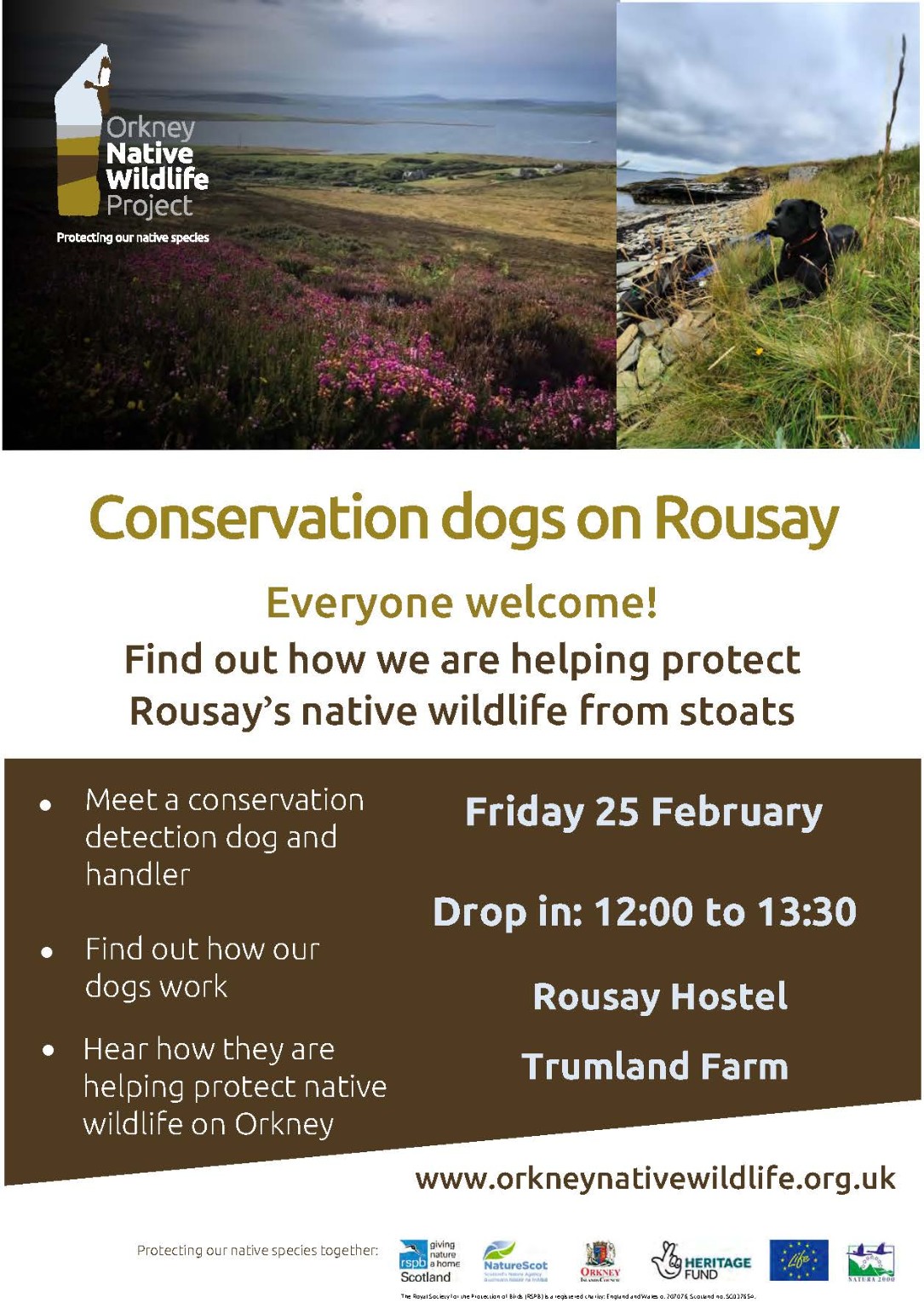 Biosecurity is the practice of protecting places from the threats to wildlife presented by introducing new diseases, types of plants or animals that do not naturally occur there. We have been working with Rousay, Egilsay and Wyre since 2018 to put in place biosecurity measures to protect the isles from the risk of non-native invasive stoats arriving, establishing and then threatening native wildlife.
Biosecurity is the practice of protecting places from the threats to wildlife presented by introducing new diseases, types of plants or animals that do not naturally occur there. We have been working with Rousay, Egilsay and Wyre since 2018 to put in place biosecurity measures to protect the isles from the risk of non-native invasive stoats arriving, establishing and then threatening native wildlife.
This will be the first time detection working dogs have had an event on Rousay since 2018, when Ange Newport and her terrier Macca from the New Zealand Department of Conservation, spent time there searching for signs of stoats. We have had biosecurity trapping and monitoring on Rousay, Wyre and Egilsay since 2019 to detect any newly arrived stoat before it has time to cause harm. This wouldn’t have been possible without the wonderful support of the community of each island, and a massive thank you from us!

